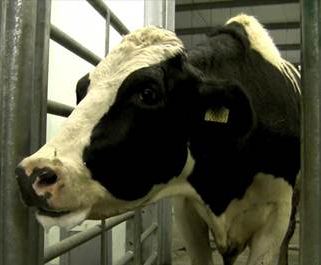



Be Wary of Lungworm On Pastures
UK – Cattle farmers are being advised to be watchful of lungworm this summer.When checking stock, signs of coughing and blowing could indicate the presence of the parasite in the lungs. The classic stance of an infected animal is mouth-breathing with the head and neck out-stretched in an attempt to get air in to the lungs. A rapid loss of body condition and weight may also be indications of lungworm burden.
Lynda Maris, Brand Manager at Merial Animal Health, sponsors of the NADIS Parasite Forecast, says: “Lungworm can effectively be treated with anthelmintics including ivermectin and eprinomectin which provide persistent activity and so prevent re-infection.
As far as sheep are concerned, producers with pastures that have not been grazed this season can consider them ‘safe grazing’ from mid-summer onwards and therefore ideal for fattening lambs. Any larvae present on the pasture will have died-off without the presence of a sheep host.

However, any lambs grazing on contaminated pastures are still at risk of PGE and should be treated with an anthelmintic. Faecal egg counts carried out after June can be used to determine treatments required until housing.
Mrs Maris says: “We have had some fine weather lately which can dry out faeces, with the larvae enclosed in the dung. Once rain hits after a dry period, the larvae are release from the faeces on to the pasture. This can cause a real threat to livestock.
A targeted anthelmintic treatment approach can be taken where only the lambs which are failing to meet expected growth rates are treated.
Mrs Maris adds: “The method of targeting individual animals can save noticeable amounts of money. It is vital to weigh lambs every 3 to 4 weeks in order for this method to be successful. A targeted approach also helps to reduce any possibility of resistance building up in the flock”.
“Farmers often forget to include rams in their flock parasite control programme plan. Rams are high value animals and crucial to the flock so it is vital that they are appropriately dosed and regularly checked”.
The first cases of blowfly strike are being reported. While farmers are waiting for the wool to rise and a period of good weather before shearing, flies and maggots can be a particular problem. The potential for fly strike is increased by any scouring caused by parasitic gastroenteritis and nematodirus, which provides a fly-friendly environment. An appropriate ectoparasitide should be used as a control. In many cases, once shorn, animals will suffer less from fly strike.
TheCattleSite News Desk


